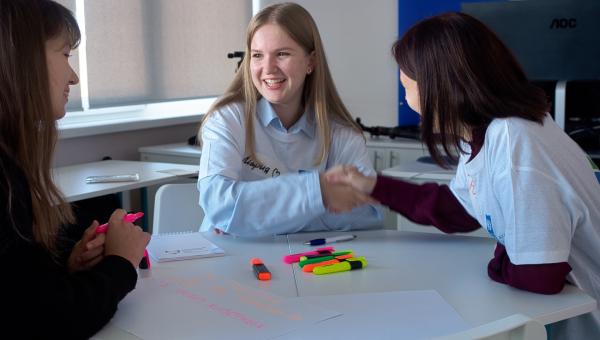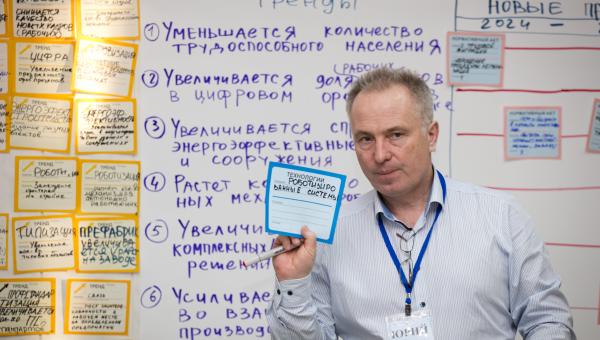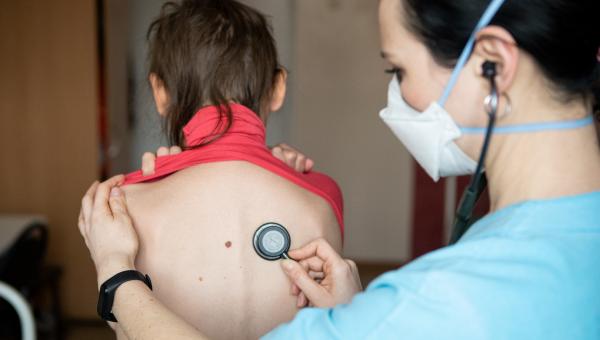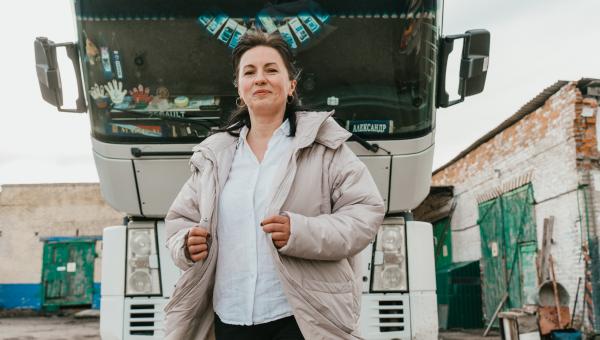Story 01
Antiretroviral therapy: a chance for a new life with HIV
January 19, 2024

********, 48 years old
No matter how positive a person is about life, antiretroviral therapy is the foundation that allows one to have prospects in it. ART was a huge breakthrough in my life. Without it, I would have died a long time ago.
At a difficult time after getting diagnosed, the support of others is crucial. In my case, there were few such people. It was 1997. HIV infection was highly stigmatized and difficult to talk about. And then, unlike today, there was no treatment.
I had a realization that some kind of infinity to life was over. It was as if I was in a cage of limited time, and it pulled a lot of energy out of me. I was not thinking about painful death. Just this thirst for life was gone, as if I was totally depleted. All those years I lived in despair and used drugs, which allowed me not to care. I didn't see much of a future for myself.
Later I hit rock bottom, and my life became unbearable both physically and emotionally. The first rehabilitation centers that had psychotherapy helped me a lot. Thanks to therapy I started dealing with my problems and learning about recovery from drug addiction. Then a friend brought me to Positive Movement where I discovered what it means to help drug addicts with no judgement and use harm reduction approach. It was important for me to meet other HIV-positive people with whom I could share my problems. We supported each other.
The most significant step for me was starting antiretroviral therapy (ART) in 2007. Before that I was very ill. Often, I didn't have the strength to even move around. I knew that drugs reducing viral load already existed in Europe, and I just waited for them to appear in Belarus. The first drugs had a lot of side effects. I had to endure because I knew without this treatment I would die.
When I started antiretroviral therapy I gained inner strength, I finally started to live a normal life. And when I saw that I had not 50-100 CD4 cells but 200-300, I realized that the treatment was working. That was a springboard to a new life. After I learned that these medicines would continue to be imported into our country and I would receive them for free, I became less afraid of dying.
The blood of a healthy person contains 800-1200 CD4 cells that are responsible for the immune system’s response to various infections. HVI-positive people with a favorable course of disease have a cell count of about 500 CD4-lymphocytes per 1 ml of blood. A decrease to 200 cells and below is life-threatening, as opportunistic infections develop in the body.
I can’t say I am living like a completely healthy person. I need to look after my health more carefully, and the responsibility for it is entirely with me. A chronic disease is something that doesn’t go away. In the most difficult moments, I told myself that I had to pull myself together like Baron Munchausen and do the necessary check-ups, go to group therapy, and talk to a psychologist. People with addiction need to keep fighting and stay busy. They can’t sit still.
I do not worry about what is going to happen. No one knows. I live my life in the moment. When the disease takes all the attention, you lose interest in life.
The first thought that comes to mind is that it’s not happening to me, I don’t have it. You must accept the diagnosis. Yes, now I have to take pills. Yes, I might not be loved. Yes, the doctor may talk to me not the way I would like to be talked to. Yes, someone might stop talking to me altogether.
Personally, I got so much energy from talking about my HIV-positive status and sharing my experience as a peer counselor. When I was saying that one has to get treated, I was also speaking to myself and convincing myself even more.
In the rehabilitation center I saw that there were people who would work miracles just by talking to someone. I loved it and, in many ways, it motivated me to study psychology. Now I help other people myself.
No matter how positive a person is about life, antiretroviral therapy is the foundation that allows one to have prospects in it. ART was a huge breakthrough in my life. Without it, I would have died a long time ago.
The United Nations Development Program (UNDP) is the main recipient of the Global Fund to Fight HIV, Tuberculosis and Malaria grant in Belarus. UNDP facilitates the purchase of materials and equipment for diagnosing HIV infection, medications to reduce the viral load to an undetectable level, and pre- and post-exposure prophylaxis. UNDP also provides support to non-profit organizations working with people most vulnerable to HIV infection.

 Locations
Locations



